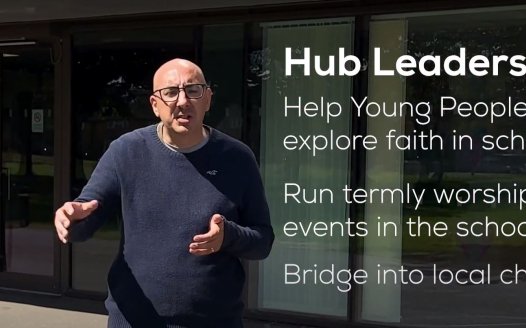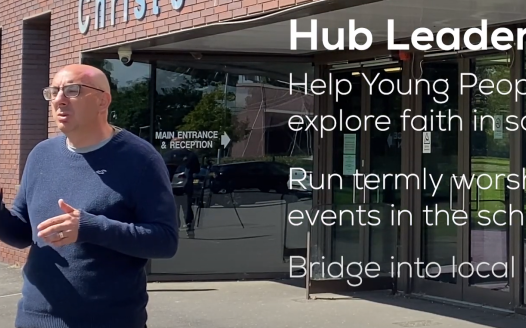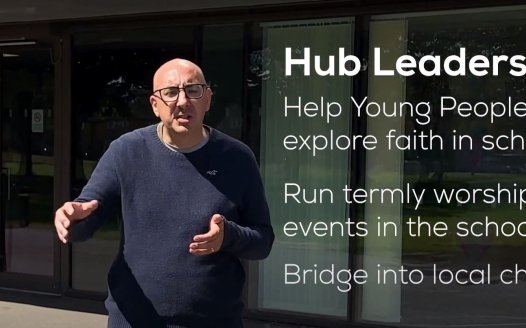Australia shows the way in removing evangelists from schools
Posted: Thu, 20th Feb 2014 by Terry Sanderson
With widespread apathy about what passes for religious education in schools, our classrooms are increasingly being used by religious groups to carry out their missionary work. Terry Sanderson explains how Australian parents have led the way in removing evangelists from schools.
Last year the National Secular Society published a report about the incursion of dubious and extreme religious groups into schools.
We made the point that some of these groups are not really concerned with giving a rounded education about religion, but are more interested proselytising and seeking converts for their own brand of Christianity.
School heads seem complacent about it, even grateful to these groups for helping them fulfil a legal requirement to provide religious education and worship that their own teachers are unable or unwilling to undertake.
We complained to the Department for Education and sent them the evidence we had gathered. Their response was equally unconcerned, even vaguely approving of the idea of these evangelists using schools as a platform for their message.
It appears that religious enthusiasts of all stripes can have free access to our schools if they are determined enough. All they need do is offer their services, which are often attractive and apparently skilled.
Similar concern about the infiltration of schools has been raised in other parts of the world.
In Ireland recently, a rather extreme Catholic group called Pure in Heart, with a message about abstinence, the undesirability of masturbation and the evils of contraception went into a school and taped up the hands of pupils to demonstrate something or other about the evils of extra-marital sex.
Since the controversy, the Pure in Heart website has been taken down for "a facelift".
The Irish Examiner appealed in an editorial for more oversight in schools to ensure that visiting groups weren't overstepping the mark.
We made a similar appeal to Michael Gove but he will not be moved.
There are signs, though, that in some parts of the world the evangelists are not given quite such a clear run to make coverts in classrooms.
In the state of Victoria in Australia, an evangelical outfit called Access Ministries was appointed by the authorities in 2006 to provide in its schools "Christian Special Religious Instruction (SRI)" which Access prefers to more reassuringly call "Christian Religious Education (CRE)".
From the very start it was clear to some that this was state-sponsored evangelism and proselytising in schools. As parents became aware of what was happening, the unease and resentment grew.
Some parents complained after finding out that, even after they had exercised their 'opt-out' right, their children were still receiving religious education. Consequently, for the past two years, Religious Education has become "opt in".
According to the Current Education Department guidelines, school principals are required to schedule "special religious instruction" classes in the school year when accredited teachers are available. Based on figures released by the Education Department, the number of state schools offering religious education has declined by almost a third in Victoria in the past two years.
Statistics show about 666 state schools offered religious education in 2013 compared to 940 schools in 2011. There were 130,100 students who got religious education in 2011 while only 92,808 students in 2013.
One principal, Joe Kelly, of Cranbourne South Primary School, who has suspended the classes with Access Ministries, said: "It is not education… It has no value whatsoever. It is rubbish – hollow and empty rhetoric … My school teachers are committed to teaching children, not indoctrinating them."
A spokesperson for the Atheist Foundation said: "We encourage all other school principals to put the education of our children above the attempts to indoctrinate them via the promotion of one particular faith based belief system. This thinly veiled pseudo-curriculum has already been systematically reviewed and exposed for what it really is."
Professor Marion Maddox, a leading authority on the intersection of religion and politics in Australia and Director of Macquarie University's Centre for Research on Social Inclusion, concluded:
"The tone of ACCESS materials is unequivocally evangelical, not only in that it relentlessly pushes the participating students towards cultivating an individual faith but, perhaps more importantly, in that a person participating in the ACCESS program would come away with the idea that Christians believe that being (or becoming) a Christian is the only acceptable life choice.
"Moreover, proselytising may occur not merely between religions but between different branches of a single religion. Despite occasional warnings in the teachers' books to have regard to Christian diversity, 'Religion in Life' continuously presents a single, evangelical, literalist version of Christianity. My conclusion is that 'Religion in Life' would, intentionally or not, have the effect of conveying to non-evangelical Christian students that their version of Christianity was inadequate and that they should abandon it and adopt the 'Religion in Life' version."
Dr David Zyngier, Senior Lecturer in Curriculum & Pedagogy at Monash University included in his evaluation:
"Students across all the student workbooks are not being challenged to think independently as the vast majority of student tasks are based on what we in the profession call busy work.
"Moreover there does not seem to be any logical selection and sequencing of the content, nor is the content broken down into manageable instructional units based on students' cognitive capabilities. The related instructional delivery in the Instructor's Manual also does not appear to support clear sequencing, clear descriptions and demonstrations of skills to be acquired, nor are the student activities followed by practice and timely feedback – the essence of good pedagogical practice which should focus initially on high levels of teacher involvement."
And further reassuring news comes from New Zealand where a primary school in Auckland has removed religious education from its curriculum after several parents complained to the Human Rights Commission.
St. Heliers School was accused of discriminating against non-Christian families by teaching religious classes to all students. The school sent a letter to parents telling them it would remove the religious classes within regular school hours. Religious education will still be offered in the school but only after normal class hours.
So, it can be done. But the lesson of these cases is that the initiative has to come from the parents. Only if they make their concerns and anger known will the Government listen, otherwise the evangelists have a free hand.
As things stand at present in Britain, the widespread apathy about what goes on in schools in relation to religious education stands in the way of any barriers being put up.
Even if the law did not compel schools to teach religious education, there seems to be a general feeling among headteachers, as well as the Government, that any religion is better than no religion.
Obviously, that is not an opinion that we share. We have provided the bullet in the form of our Evangelism in Schools report. But it is up to parents to fire it.
Read our report on the activities of evangelical organisations in state schools:
Evangelism in schools – The role of external visitors in publicly funded education







